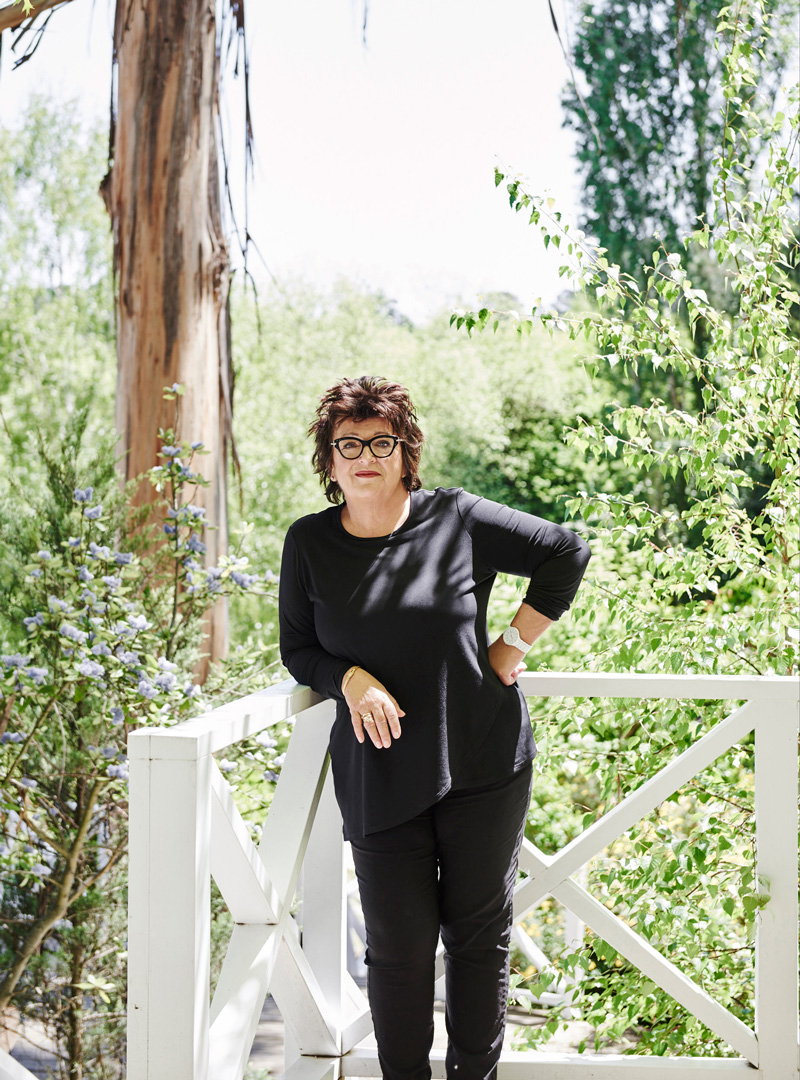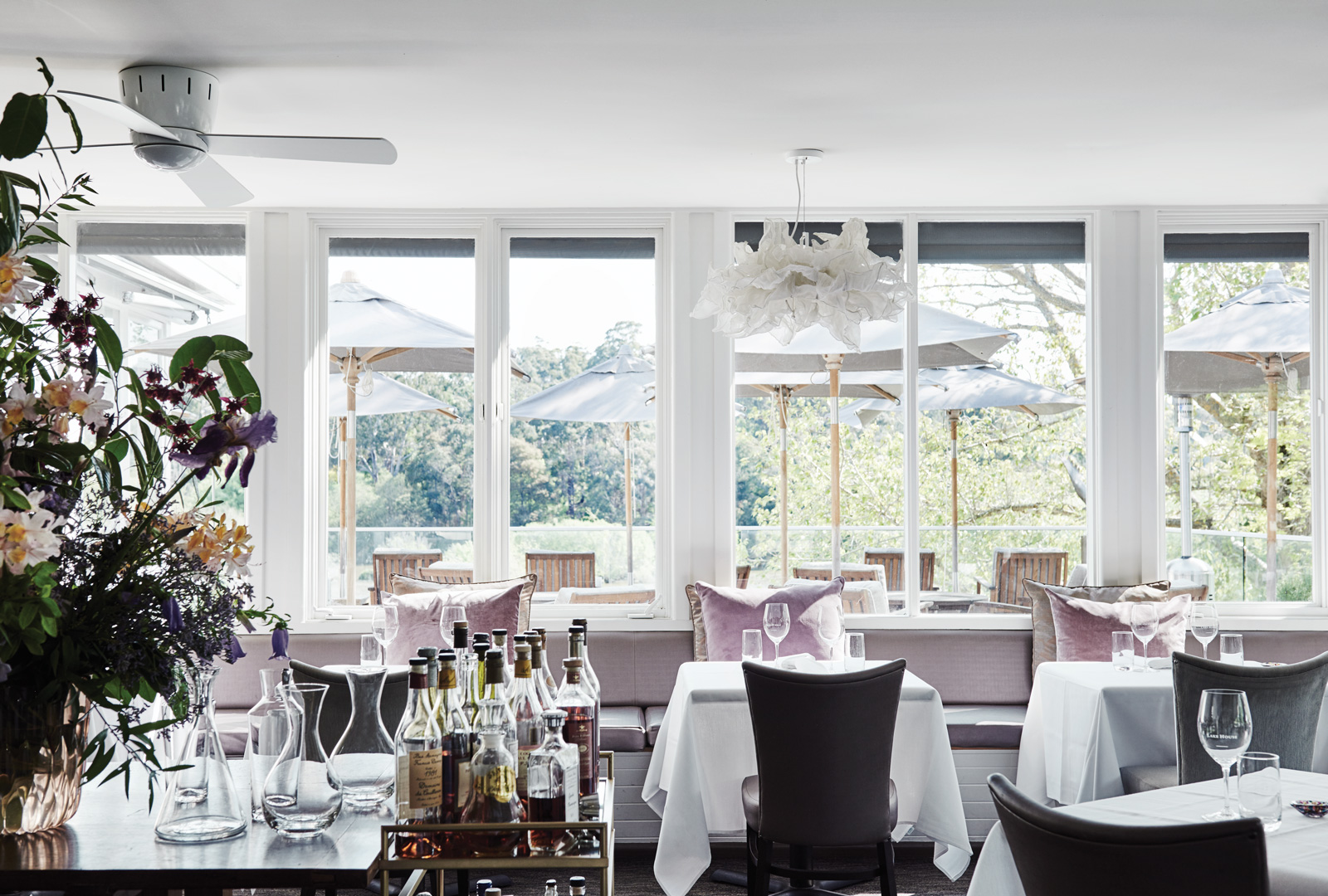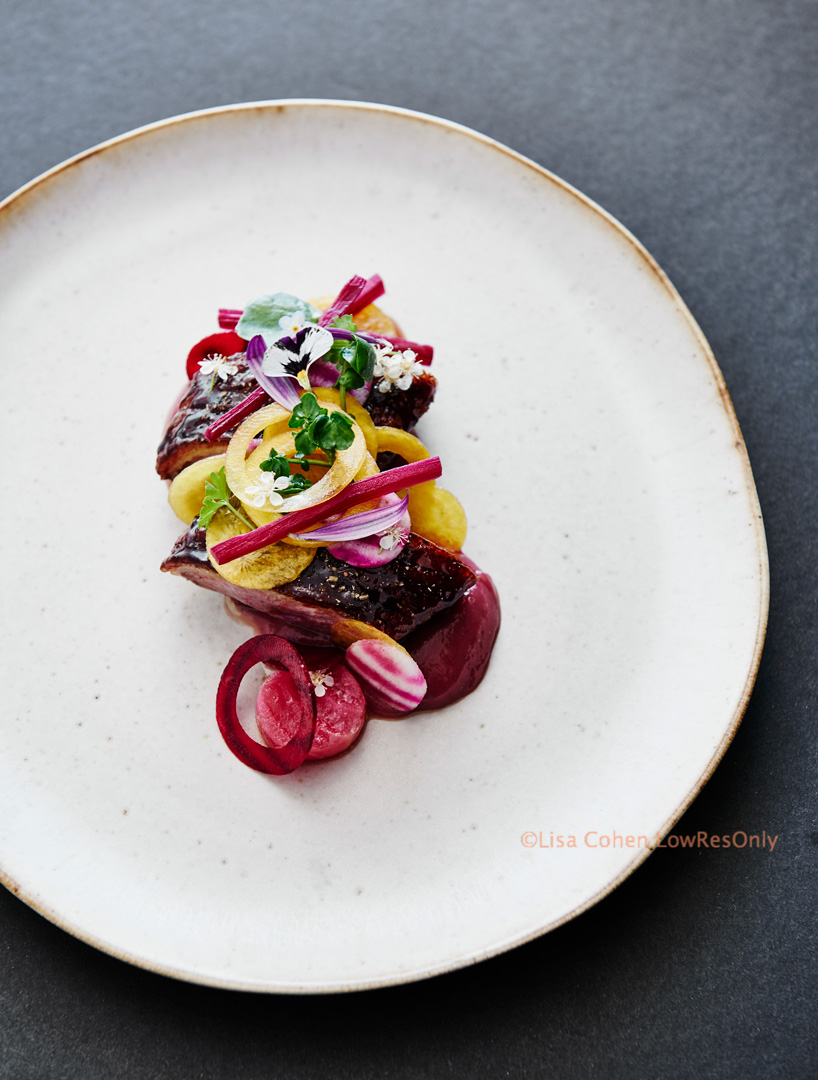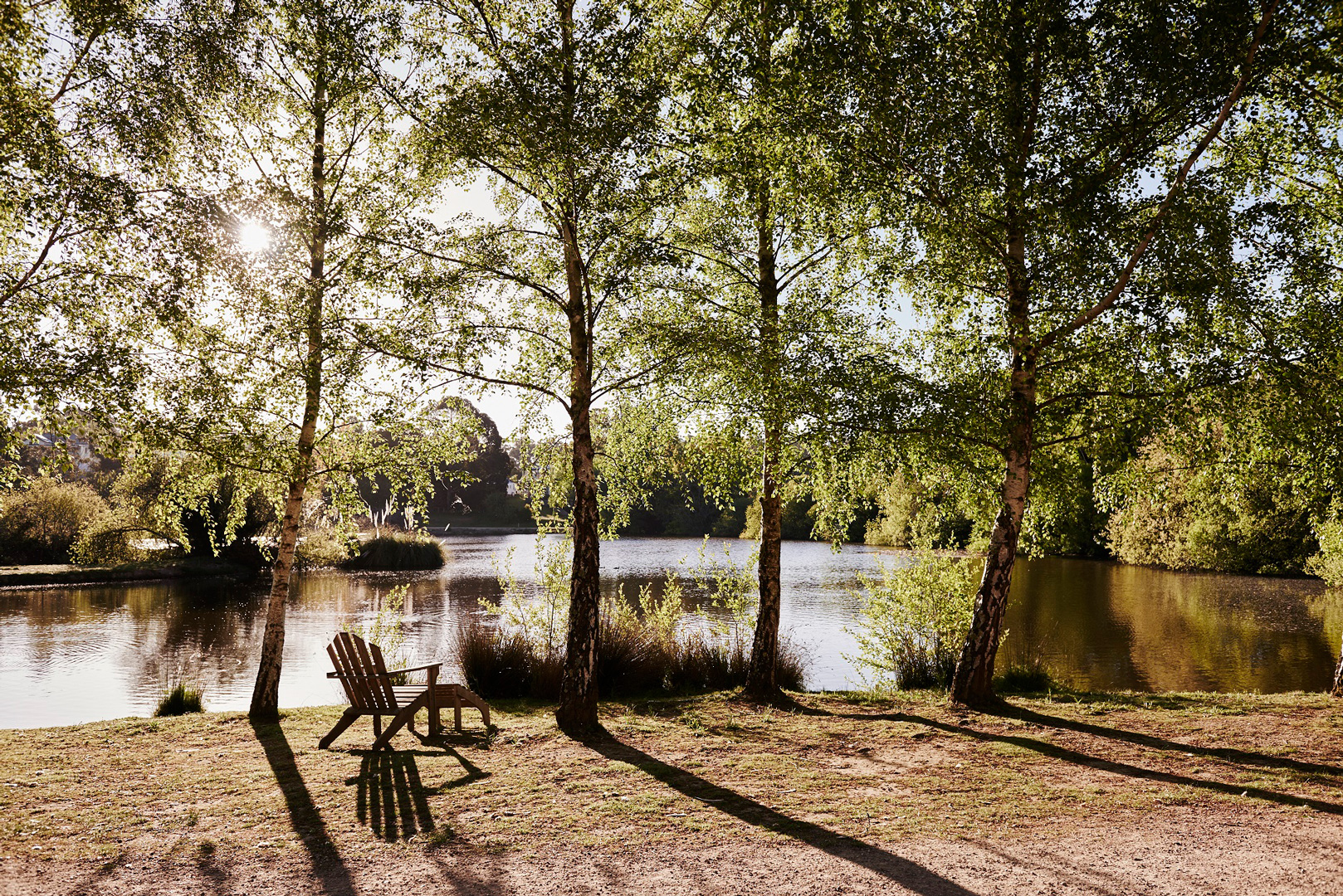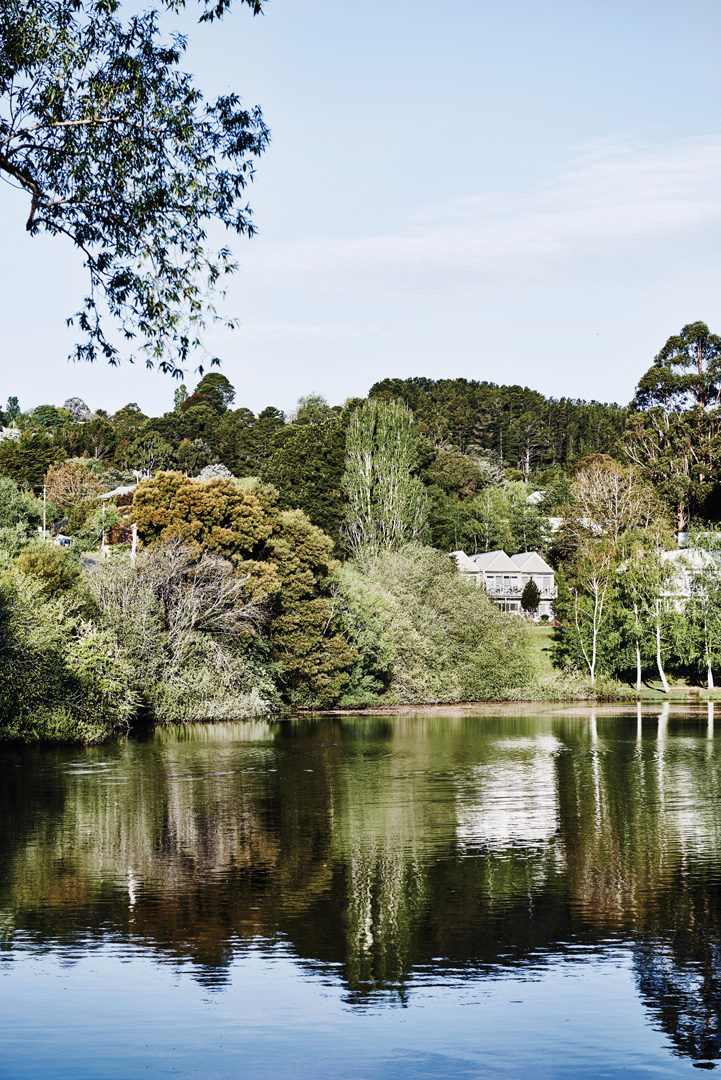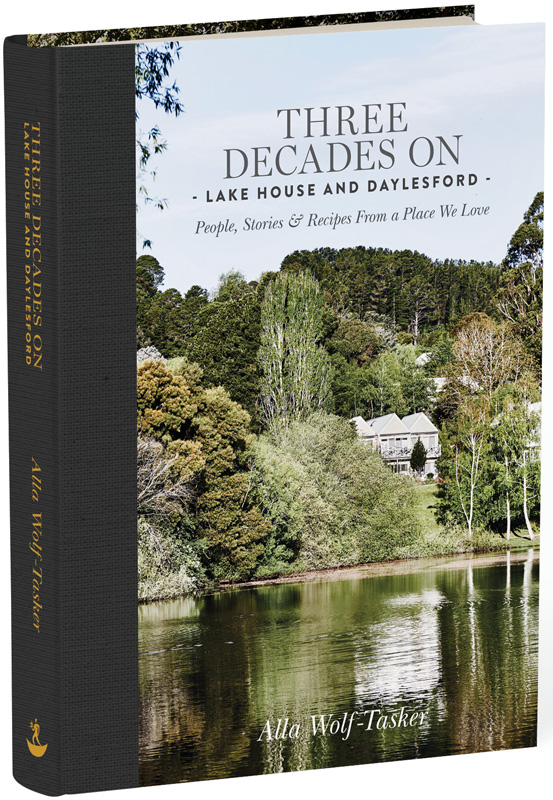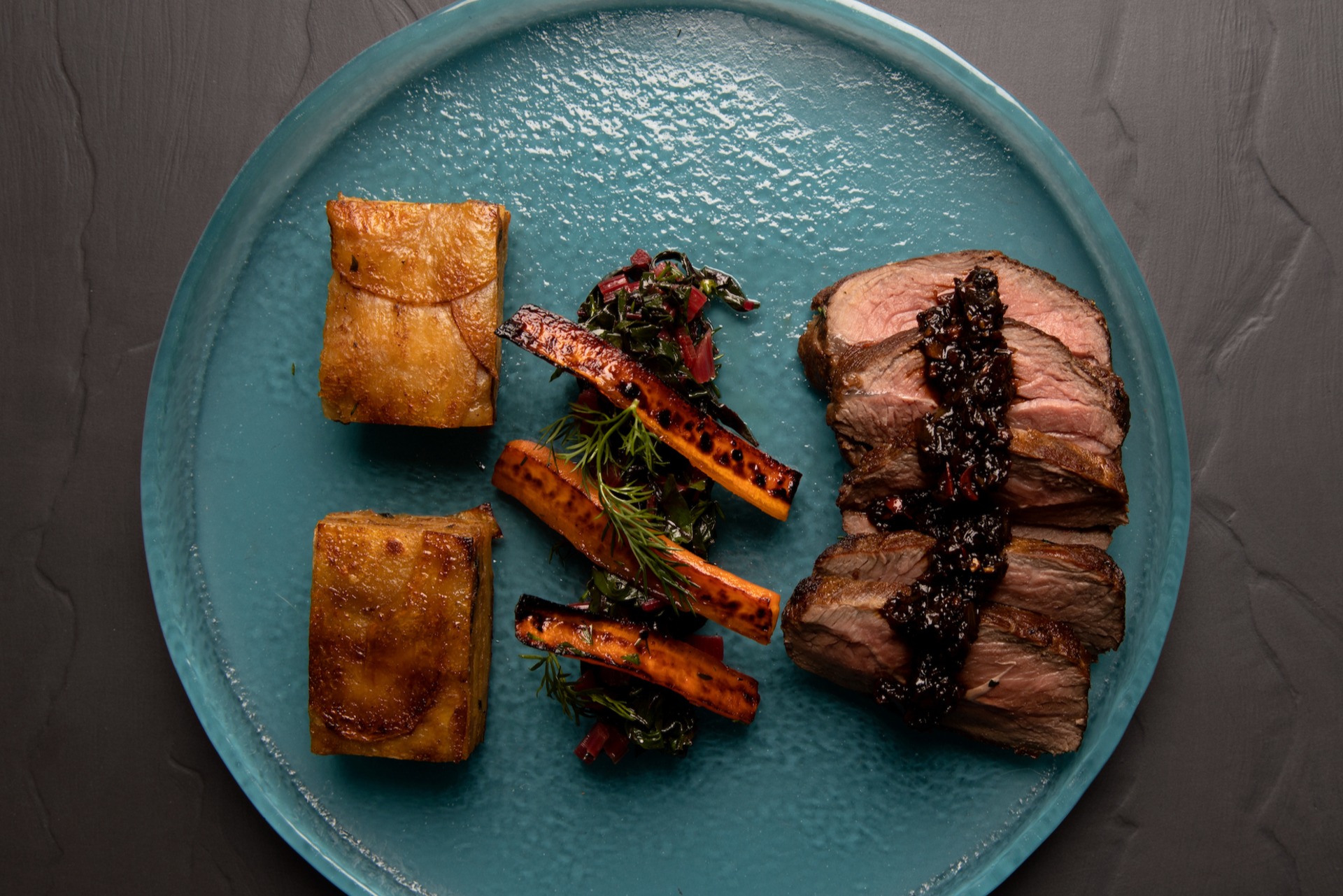Some of Australia’s top restaurants are now located in regional areas, and Lake House is one of the best – being ranked by the National Good Food Guide as one of the top 12 restaurants in the country.
It was also one of the first. From humble beginnings in the early 1980s, proprietor and culinary director Alla Wolf-Tasker AM has led the charge for regional fine dining, promoting the rise of small-scale local and organic farming, and boldly blazing a trail for other regional venues to follow. She tells OHO’s Jay Dillon all about it – and about her latest book, Three Decades On.
Three decades is an extraordinarily long time for any hospitality venture. How has Lake House been able to stay fresh and relevant within the fine dining scene?
I’m pleased to say we are busier than ever. I think you’re right: that has to be to do with staying fresh, current and relevant. We constantly reinvest in the business in terms of how we look and what we do. We also remain abreast of contemporary culinary thinking but avoid fads. New things are tested against our own philosophy and convictions. And through the lens, if you like, of our own culinary DNA. It’s gratifying that apart from many many loyal return guests, we also continue to capture new young diners as well. We fulfil many needs – be it a lazy lunch on the terrace overlooking the lake, cocktails on the lagoon deck as the sun slips over the far side of the lake, or a romantic table for dinner in the dining room. Certainly guests seek us out for special occasions. Perhaps in a world of quick dinners in casual noisy surroundings or the necessity of Ubereats after a hugely busy day, the notion of escape to a beautiful location and a refined but accessible and friendly two-hat experience resonates with people.
What has been the consistent factor with the Lake House experience throughout this time?
Well, firstly, the fact that we are in the business of hospitality. It’s an often forgotten factor nowadays. A warm welcome, guest comfort, service that allows one to relax in the hands of professionals, delicious thoughtful food. It’s what we do. It’s not rocket science.
And certainly the philosophy behind our culinary endeavours remains consistent. There are three critical parts to that – relevance, provenance and seasonality. They haven’t changed for me since the day we opened. You won’t find us emulating a dish from a restaurant on the other side of the globe that has no relevance for us or to our sense of place. Provenance, ie, where our food comes from, has also always been important for us. And I’m not surprised to see that it is growing in importance for people in general. I often know our growers and producers personally, or if they’re from farther away, I’ve often visited them and seen their operations. We make it our business to know as much as possible about our suppliers, we seek out the best and we share that information with our guests. Seasonality – wanting the season outside to be reflected on our plates, is of equal importance. Many of our raw ingredients come from our vibrant and ever-expanding local good food community. Since opening, I have also fostered an open kitchen door policy at Lake House. Often it’s local residents who will bring in windfalls from their garden.
We are not about fads or shock value. We enjoy contemporary culinary thinking and broadening our knowledge. But we test all innovation against our philosophy. I think guests understand and appreciate that.
What are some of the struggles you have regularly faced in your time at the helm of Lake House?
Running a destination restaurant in regional Australia was always going to be fraught with difficulties not often experienced by our city cousins. In the early days, when this region was pretty much unknown, there were no fresh-produce deliveries to speak of and it was way before the building of our network of local producers. There was also no pool of trained staff. People were loath to relocate from cities, as the livability of regions such as ours left a lot to be desired. Things have changed enormously since then. Because of our standing, our continued accolades and what Daylesford has become, we have many young people from around the globe come work with us.
Broadly speaking, what changes have you noticed in regional dining experiences?
It’s been huge. Three decades on – drive an hour or an hour-and-a-half out of most Australian capital cities and you’ll be sure to come across a decent general store, a cellar door, a good cafe and even, in some regions, a one-hat restaurant. In the early ’80s it was safer to take a picnic when one travelled to the country. I kid you not.
But even more gratifying for me is the fact that some of Australia’s best restaurants are now located in the regions. Our score of 17.5/20 in the National Good Food Guide puts us amongst the top 12 restaurants in Australia. There are several regional restaurants amongst the top 20. How wonderful for Australia – beautiful locations and great food to boot!
What effect do you feel regional dining can have on small-town communities?
There’s no question of the pull of good food and wine for visitors to regional areas. Many would rank the availability of good food as affecting their choice to travel. The better the quality and ranking of the restaurants, the greater the pull. But put together those restaurants with a thriving local food-hub of growers and producers, like we have here, and you can produce the magic triple bottom line: environmental, social and economic outcomes for the community.
There’s no question of the pull of good food and wine for visitors to regional areas. Many would rank the availability of good food as affecting their choice to travel. The better the quality and ranking of the restaurants, the greater the pull.
How has the community of small-scale farmers changed over the years?
There were no small-scale artisan regenerative farmers to speak of, nothing of the kind of food communities I had encountered in France as a young cook. Here in this region, as in just about everywhere else, we were surrounded by Big Ag. Farms growing commodity crops destined to be transported or stored elsewhere. There was very little, if any, food being grown for local tables. Now, three decades on, we are surrounded by a wealth of these regenerative small farms, growing often award-winning produce using best practice. I wrote in detail about what was needed to create this sort of critical mass in my last book, A Culinary Journey in Country Australia. I’m delighted to be able to shine a light on our local food community with a few detailed profiles of our local suppliers in this new book.
Now, three decades on, we are surrounded by a wealth of these regenerative small farms, growing often award-winning produce using best practice.
What’s in season right now that you are making the most of?
At the beginning of autumn we were still experiencing an Indian summer of sorts. We had a bumper season of plums. In fact we’ve been a little out-plummed this year – making plum wine, plum tarts, plum cakes, plum sauces and much else. It was also a good season for apples, Nashi pears were in abundance, quince…We also had a long, bountiful season for local organic tomatoes, zucchini, beets, carrots (all covering many heirloom varieties), masses of varied salad leaves and herbs.
Now that the rains have finally come; we’re out mushrooming in the local forests. I dream in anticipation of the local chestnuts and truffles that will be along a little later. I love the rhythm of the seasons – it remains, I think, the greatest source of inspiration for the dedicated cook and gardener.
What is the future for Lake House?
We’re restless and never rest on our laurels. My young team is full of ideas and energy. The future is, I have no doubt, limitless with possibilities. And then there’s my extra-curricular activities: the Daylesford Institute of Gastronomy and my scholarship program. That’s another story – there’s more about that in the book. But truly, there’s never a dull moment.
Alla Wolf-Tasker’s latest book, Three Decades On: Lake House and Daylesford – People, Stories and Recipes From a Place We Love, is available at all good bookstores or online. RRP $69.95
